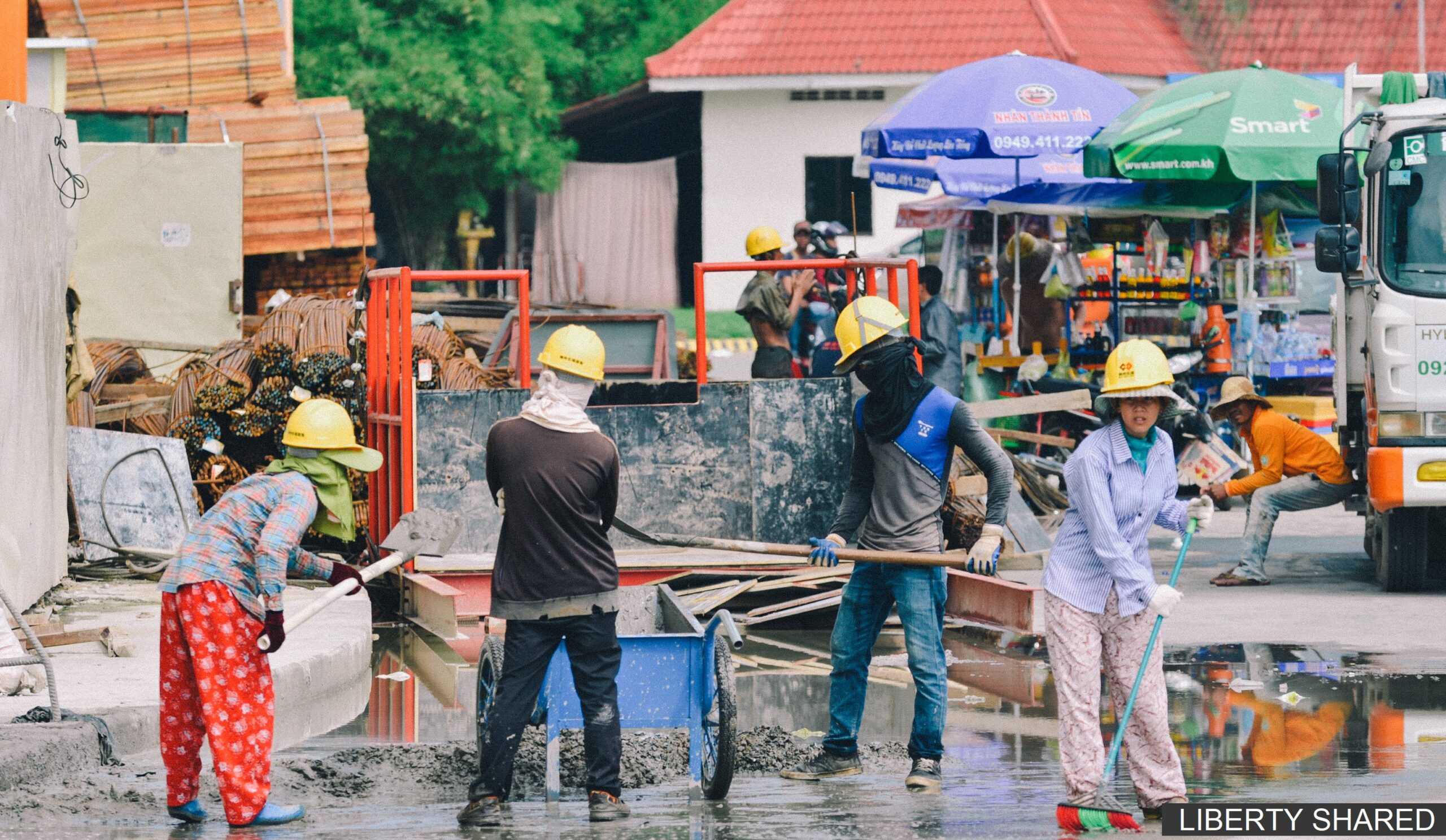Partnering to fight modern slavery and human trafficking: working with NGOs in Asia


“Did you know that 25 million people are currently trapped in forced labour globally – yet just under 24,000 victims are identified and less than 1,000 traffickers are prosecuted every year?”
The prevalence of forced labour is highest in Asia and the Pacific, where four out of every 1,000 people are victims of forced labour. These stark numbers indicate that current criminal justice-focused solutions to modern slavery and human trafficking (MSHT) are not effective on their own.
At a recent Asia Pacific Group (APG) workshop on Human Trafficking and People Smuggling in Bandung, Indonesia we shared our experiences of this serious and growing issue and our approach to tackling it. The APG workshop was attended by 64 people from 12 jurisdictions representing international organisations, the private sector, and NGOs.
Our experience is that an effective way to better tackle human trafficking is to disrupt access to finances for those who benefit from slavery, which requires a detailed understanding of the financial flows associated with it. To better understand the intricacies of the crime, financial institutions benefit from partnering with representatives of the public sector and civil society such as non-governmental organisations (NGOs) who focus on this issue. Standard Chartered partners with a number of NGOs dedicated to this effort; one of these partners, Liberty Shared, was represented at the APG workshop.
 Liberty Shared aims to prevent human trafficking through legal advocacy, technological interventions, and strategic collaborations with NGOs and corporations globally. Since its inception in 2011, Liberty Shared has provided specific actionable intelligence to a variety of stakeholders (including Financial Institutions) on industries at risk of being powered by slavery.
Liberty Shared aims to prevent human trafficking through legal advocacy, technological interventions, and strategic collaborations with NGOs and corporations globally. Since its inception in 2011, Liberty Shared has provided specific actionable intelligence to a variety of stakeholders (including Financial Institutions) on industries at risk of being powered by slavery.
Grassroot organisations seek to gather information from their own projects in order to help victims of exploitation. NGOs can then analyse these integral pieces of information, and coupled with industry insights and open source research, turn it into actionable intelligence. Intelligence that NGOs provide can vary from known geographical hotspots, operation methods of the criminals, or names/addresses of suspected perpetrators.
Financial institutions receive this intelligence and combine it internally with client data, with the objective of following the money trail beyond what NGOs can see. This allows banks to identify suspicious activity and undertake the necessary reporting in accordance with regulatory obligations. We also share anonymised intelligence (with personal information removed to meet data privacy obligations) with a wider audience such as the public sector, industry peers, NGO partners, and other sectors at events such as the APG workshop. This enables these participants, including NGOs, to improve their understanding of human trafficking and modern slavery typologies and in turn understand the various money laundering methods and channels associated with the crime.
We also share our collective knowledge with our respondent bank clients. Watch the video on anti-human trafficking to see our insights into the crime and how banks can play a part in curbing it.
Some challenges still need to be overcome for NGOs, financial institutions and other stakeholders to partner more effectively and create a sizeable impact on the global economy of human exploitation.
Closer collaboration is needed to further understand how financial activities, such as payments, link to victim experiences. Opportunity exists for NGOs to better understand the type of information financial institutions require to identify activity linked with human trafficking, and for financial institutions to better articulate how the problem manifests itself in the financial system. Financial institutions and NGOs both need to dedicate resources and maintain effective tools to accelerate this effort.
NGOs such as Liberty Shared would like to see a more structured approach to closer collaboration with financial institutions and the public sector.
“Protective mechanisms that will allow for more effective engagement of civil society are needed if NGOs are to play an effective part in being the eyes and ears of the private sector on the frontlines where exploitation takes place.”
Both the banking and the NGO sectors benefit from working together to identify solutions in combating the illegal yet highly lucrative business of exploitation. The APG workshop in Bandung was a great example of how different participants can make a collective effort to address modern slavery and human trafficking with actionable outcomes as a result.
This Perspective was authored jointly by Standard Chartered Bank and Liberty Shared.